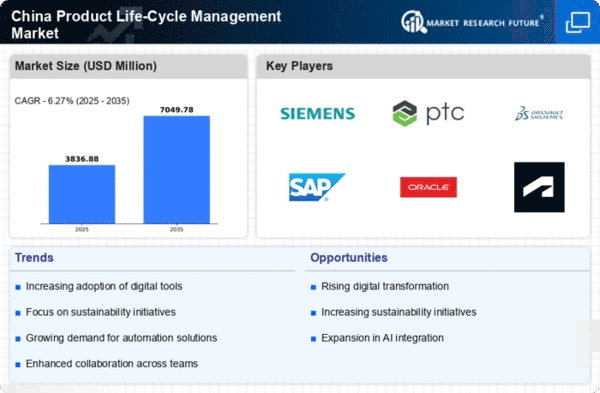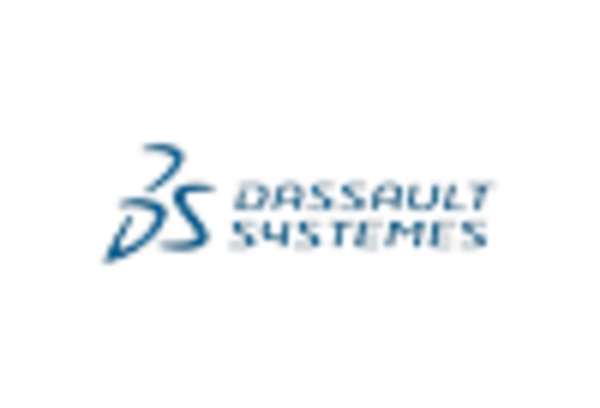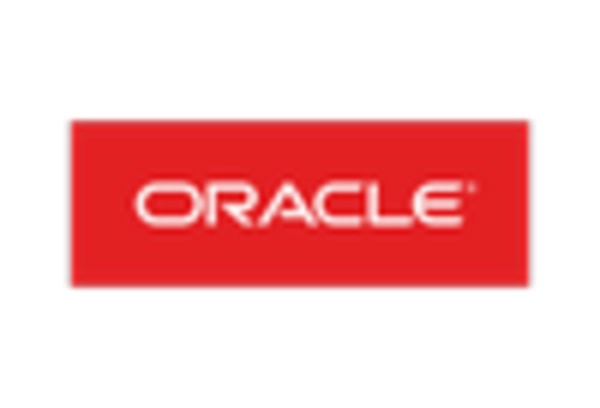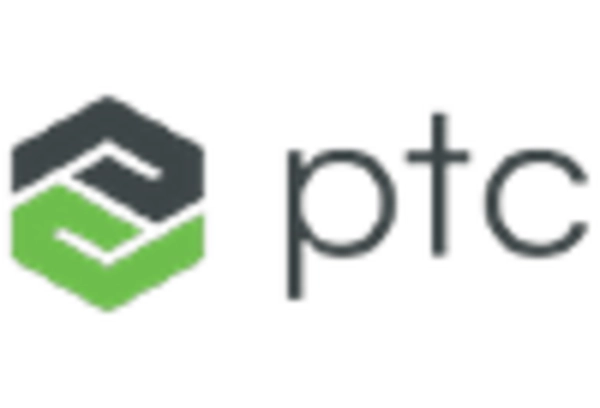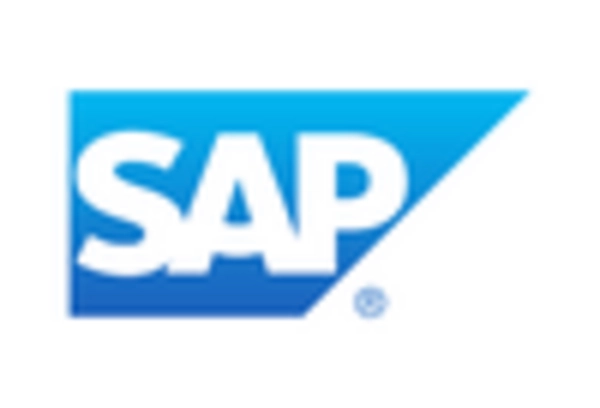Increased Focus on Innovation and R&D
The product life-cycle-management market in China is significantly influenced by an increased focus on innovation and research and development (R&D). As companies seek to differentiate themselves in a competitive environment, investment in R&D has become a priority. In 2025, the market is anticipated to grow by approximately 10%, fueled by the need for innovative product offerings. PLM solutions play a vital role in facilitating collaboration among R&D teams, enabling faster product development cycles and improved time-to-market. This trend is particularly pronounced in technology and automotive sectors, where rapid innovation is essential for maintaining market relevance. By leveraging PLM systems, organizations can streamline their innovation processes, ensuring that new products align with market demands and consumer preferences.
Emphasis on Data Analytics and Insights
Data analytics is emerging as a crucial driver in the product life-cycle-management market in China. Companies are increasingly leveraging data analytics to gain insights into product performance and consumer behavior. The market is expected to grow by approximately 11% in 2025, as organizations recognize the value of data-driven decision-making. PLM systems equipped with advanced analytics capabilities enable businesses to monitor product lifecycles, identify trends, and optimize processes. This trend is particularly significant in sectors such as retail and manufacturing, where understanding consumer preferences is vital for success. By harnessing data analytics, companies can enhance their product strategies, ensuring that offerings align with market demands and ultimately driving growth in the product life-cycle-management market.
Rising Adoption of Cloud-Based Solutions
The shift towards cloud-based solutions is a prominent driver in the product life-cycle-management market in China. As businesses increasingly recognize the benefits of cloud technology, the adoption of cloud-based PLM systems is on the rise. In 2025, the market is projected to expand by around 14%, as organizations seek to enhance flexibility and scalability. Cloud-based PLM solutions offer real-time access to product data, facilitating collaboration among geographically dispersed teams. This trend is particularly relevant for multinational corporations operating in China, where efficient communication and data sharing are essential. The ability to access PLM systems from anywhere also supports remote work initiatives, further driving the demand for cloud-based solutions in the product life-cycle-management market.
Growing Demand for Efficient Supply Chains
The product life-cycle-management market in China is experiencing a notable surge in demand for efficient supply chains. As industries strive to enhance operational efficiency, the integration of product life-cycle management solutions becomes crucial. In 2025, the market is projected to grow by approximately 15%, driven by the need for streamlined processes and reduced time-to-market. Companies are increasingly adopting PLM systems to manage product data, improve collaboration, and ensure compliance with regulatory standards. This trend is particularly evident in sectors such as manufacturing and consumer goods, where the ability to respond swiftly to market changes is paramount. The emphasis on efficiency not only reduces costs but also enhances customer satisfaction, thereby solidifying the role of product life-cycle management in the competitive landscape of China.
Regulatory Compliance and Quality Assurance
In the context of the product life-cycle-management market, regulatory compliance and quality assurance are becoming increasingly critical in China. As the government enforces stricter regulations across various industries, companies are compelled to adopt PLM solutions to ensure adherence to these standards. The market is expected to witness a growth rate of around 12% in 2025, as organizations prioritize compliance to avoid penalties and maintain their market reputation. PLM systems facilitate the documentation and tracking of compliance-related data, enabling businesses to demonstrate their commitment to quality and safety. This driver is particularly significant in sectors such as pharmaceuticals and food production, where regulatory scrutiny is intense. Consequently, the integration of robust PLM systems is essential for companies aiming to navigate the complex regulatory landscape effectively.


